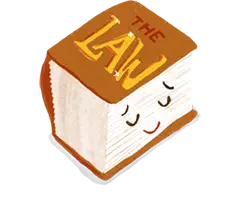Topic
Elections
This page contains different parts of laws about Elections, within the topic of Government and voting.

Important laws about Elections
Conservation Act 1987
How to Run Elections for Fish and Game Councils
26Z: Conduct of elections
Immigration Act 2009
Laws Changed by the Immigration Act 2009
Schedule 3: Enactments amended
Civil Defence Emergency Management Act 2002
Parliament must meet within 7 days if a national emergency is declared
67: Parliament must meet if state of national emergency declared
Broadcasting Act 1989
How to take your complaint to the Authority if you're not happy with a broadcaster's decision
8: Right of complainant to refer formal complaint to Authority
Broadcasting Act 1989
The Broadcasting Standards Authority's jobs include helping create rules for TV and radio.
21: Functions of Authority
Broadcasting Act 1989
Who controls the votes in broadcasting companies
56: Control of voting rights
Broadcasting Act 1989
This law has special rules for by-elections on TV and radio.
69A: Limited application of this Part to by-elections
Broadcasting Act 1989
Rules for broadcasting programmes about elections on TV or radio
70: Broadcasting election programmes
Broadcasting Act 1989
Political parties must tell the Electoral Commission about election broadcasts
70A: Obligation of political parties to give notice to Electoral Commission
Broadcasting Act 1989
When to give notice for broadcasting
70B: Time by which notice must be given
More laws about Elections
About this project
What is this project?
This project is an experiment to take difficult language, and make it easier to read and understand for everyone.
How do we do this?
What's our process for taking the law and turning it into plain language?
Why is the law written like it is?
Laws are often hard to read. They use a lot of words and language we don't usually use when we talk.
Should we use AI for this?
What are the good and bad sides of using AI?
Is this information the actual law?
We hope that this information will help people understand New Zealand laws. But we think that it's important you talk to someone who understands the law well if you have questions or are worried about something.
You can talk to Community Law or Citizen's Advice Bureau about your rights.
Remember that AI can make mistakes, and just reading the law isn't enough to understand how it could be used in court.
You can talk to Community Law or Citizen's Advice Bureau about your rights.
Remember that AI can make mistakes, and just reading the law isn't enough to understand how it could be used in court.




